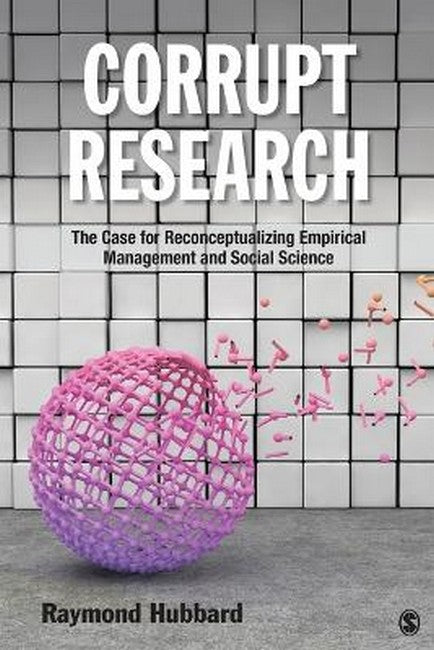Raymond Hubbard is Professor Emeritus of Marketing at Drake University, Des Moines, Iowa, USA. He holds a B.Sc. (Econ) Hons degree from the University of London, England; an M.Sc. in Geography from the University of the West Indies, Kingston, Jamaica; and an M.A. in Economics and a Ph.D. in Geography from the University of Nebraska, Lincoln. He taught previously at SUNY Fredonia, New York; and held visiting positions at the University of Washington, Seattle, and at the University of Auckland, New Zealand. His research interests include applied methodology, and the sociology and history of knowledge development in the management and social sciences. He has published numerous articles on these topics in journals in these fields. He is a lifelong supporter of Sunderland A.F.C. and a Cornhusker fan since the early 1970s.
Request Academic Copy
Please copy the ISBN for submitting review copy form
Description
1. Introduction 2. Philosophical Orientation - Significant Difference Introduction Conception of Knowledge Model of Science - Hypothetico-Deductivism The Role of "Negative" (p>.05) Results Conclusions Appendix: An Empirical Regularity Not to be Proud Of 3. Philosophical Orientation - Significant Sameness Introduction Conception of Knowledge Model of Science - Critical Realism The Role of "Negative" (P>.05) Results Statistical Power of "Negative" (P>.05) Results Conclusions 4. The Importance of Replication Research - Significant Sameness Introduction A Succinct Overview of Replication's Role A Typology of Replications Replication Research and the Acquisition of Knowledge The Role of "Internal" Replications Conclusions Appendix: The Use of Student Samples in the Management and Social Sciences 5. The Importance of Replication Research - Significant Difference Introduction The Publication Incidence of Replication Research in the Managerial and Social Sciences The Outcomes of Replication Research The Timeliness of Replication Research Why the Lack of Replication Research? The Publication Frequency of Critical Commentary Conclusions 6. Conception of Generalization/External Validity Introduction Significant Difference Significant Sameness Conclusions Appendix: Fisher's Views on Probability and Random Sampling 7. Contrasts Over Statistical Issues Introduction Model Uncertainty Nature of Predictions Made The Role of P-Values The Role of Effect Sizes and Confidence Intervals Conclusions 8. Whither the Academy? Introduction Obstacles to the Implementation of the Significant Sameness Paradigm Cultivating a Significant Sameness Tradition Retrospective: Empirical Regularities and the Emergence of Nineteenth Century Social Statistics and Social Science Conclusions 9. Epilogue

